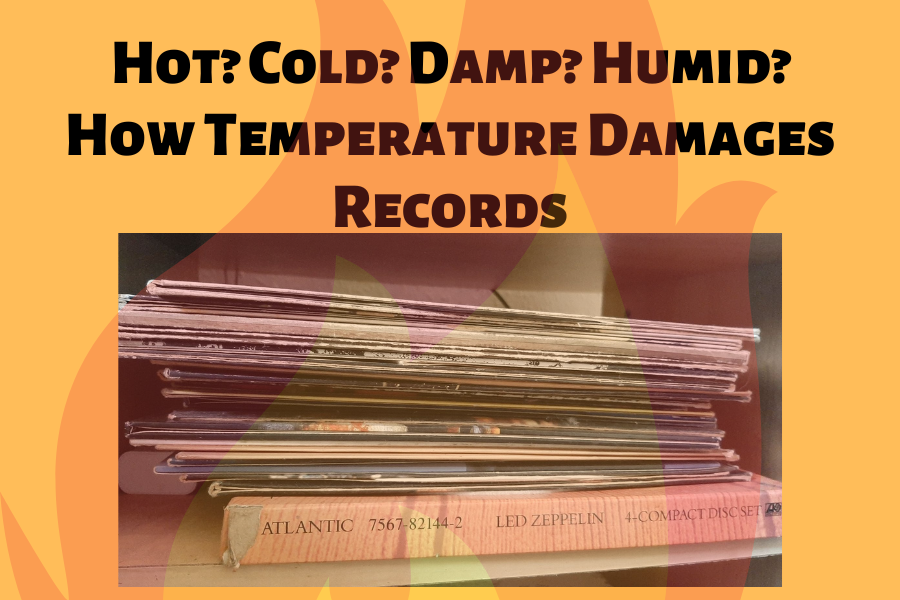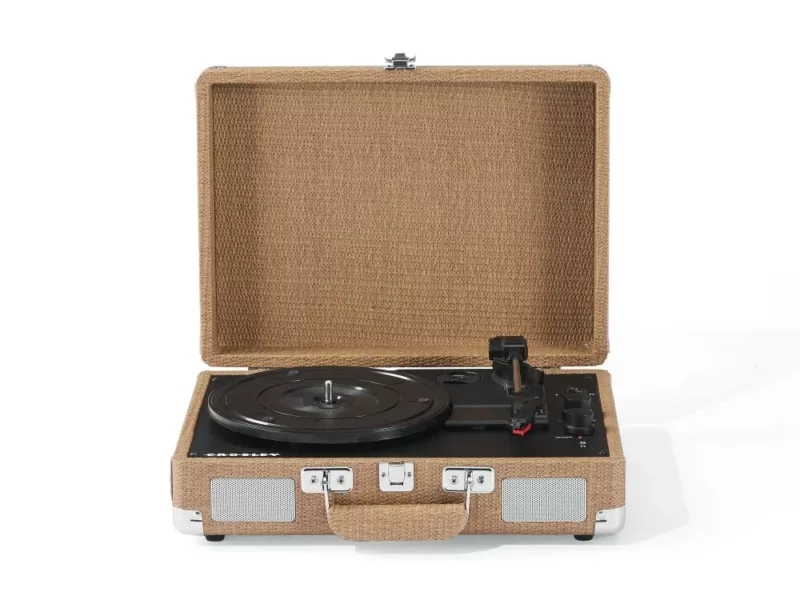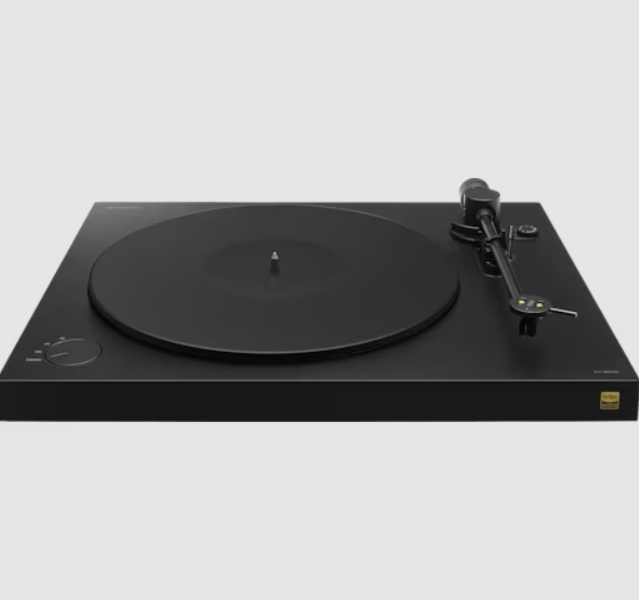Did you know temperature can cause irreparable damage to your records?
Protecting your record collection from the temperature is just as important as cleaning, storing and handling them, but is often forgotten about as a risk factor.
In this short guide, you’ll learn everything about how heat, cold, mould, humidity and more affects your records and what you need to do to protect them.
How Heat Changes Vinyl Records
Extreme heat from 60 Degrees Celcius (140 Fahrenheit) can warp or melt vinyl records. Records are not flammable but they will burn if placed into a burning fire for long enough and their paper sleeves will ignite quickly too.
If you store records in the attic, or live in a very hot area, you should consider moving your records during the summer to protect them from damage. Most homes however, will have no issues when it comes to protecting their records from the heat year-round.
Do Vinyl Records Burn?
Vinyl records are not flammable but will burn if placed in a fire for long enough. They won’t ignite on their own so they do not pose a fire hazard, even in a hot house in the summer.
The protective sleeves of records are flammable however, as they are made from paper or plastic, which can ignite easily.
There have been some cases of records setting fire in the home, but this is usually because the vinyl material was coated in a highly flammable material. The vast majority of vinyl records are made from PVC which is not flammable.
Can Vinyl Records Melt?
Vinyl records start to warp at 60 Degrees Celsius (140 Fahrenheit) and will melt at 100 Degrees Celsius (212 Fahrenheit).
As both of these temperatures are unliveable conditions, you shouldn’t worry about your records melting at home.
The exception to this, is if you store records in an attic, or in an insulating material. On extremely hot summer days, it could exceed temperatures that will warp your records and damage them permanently.
If you live in a very hot area and store records in the attic, you should purchase a thermometer to make sure temperatures don’t exceed 50 Degrees Celsius (122 Fahrenheit) to be safe.
Can I Play Vinyl Records Outside In The Sun?
Playing vinyl’s outside on a hot summers day is one of the best ways to experience vinyl, but you should keep a keen eye on the temperature to prevent damage.
The sun is unlikely to warp your records if left exposed for short periods of time. If your records are left in direct sunlight in 40 degree (Celcius) heat or higher for many hours however, they could start to warp.
If you would like to play records outside, try to position your records and record player in the shade to avoid direct sunlight as this could cause warping.
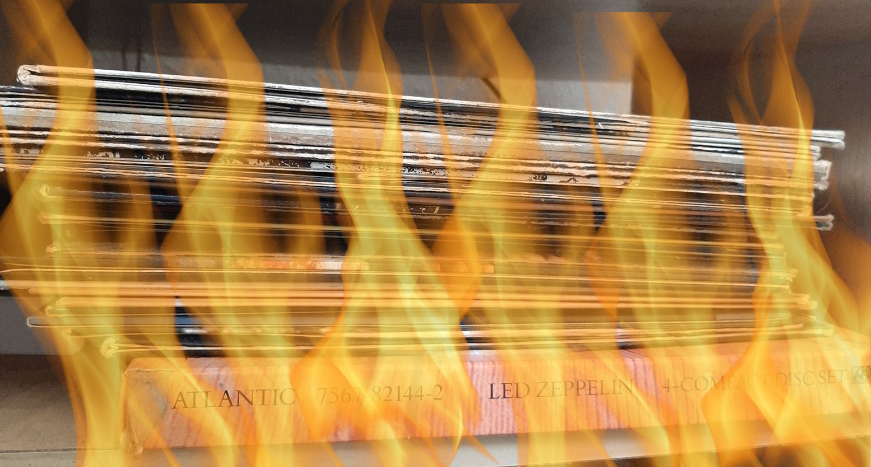
How Damp Changes Vinyl Records
If you dropped a glass of water on your vinyl record, don’t worry. Water does not damage vinyl records. In fact you can clean your records with water without any damage.
The problem comes with damp, mould and mildew, particularly in damaging the protective sleeves and artwork of each record.
Does Damp Damage Vinyl Records?
Damp will not damage your record unless it is left wet for a very long time, but it will damage the sleeve and paper coverings. It can even cause it to rub away over time, exposing your vinyl.
This leaves your record susceptible to scratches or falling onto the floor which will damage your record.
Can Vinyl Records Get Mouldy?
Vinyl is resistant to moisture but it can still develop mould and mildew. If your vinyl records develop mould or mildew, the grooves which contain the audio signals could erode and make your vinyl unplayable.
If you notice mould or mildew on your records, you can easily clean it with no damage to your record. The issue occurs when it is left untreated for a long period of time.
Can A Humid Room Damage Vinyl Records?
When it comes to the climate, humidity is one of the most common sources of record damage.
Humidity quickly creates mould and mildew which destroys record sleeves and artwork made from paper. This not only damages your record as a whole but makes it more likely it will get scratched if it’s protective sleeves wear away.
If you have a particularly humid room, especially during the winter, you should invest in a dehumidifier or plastic sleeve replacements for your records’ paper sleeves.
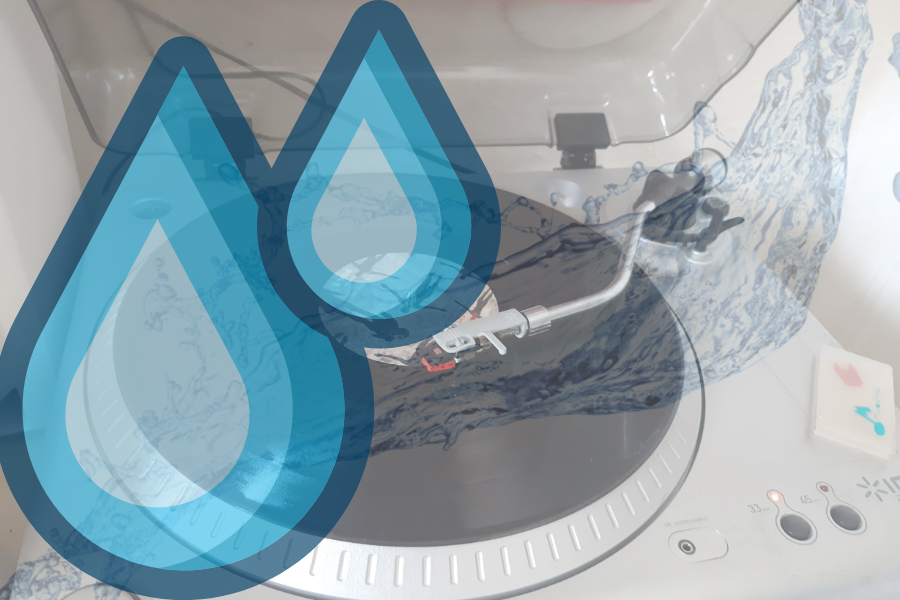
How The Cold Changes Vinyl Records
Cold temperatures cause little damage to vinyl records on their own. However, extreme cold temperatures can lead to condensation, damp and mould, which can cause significant damage, especially to your vinyl sleeves.
Can Cold Temperatures Snap A Record?
Vinyl becomes brittle at sub-zero (Celsius) temperatures but returns to normal after thawing, without any loss to quality. A sub-zero temperature will make it easier to snap a vinyl record but as they are already easy to snap, it won’t make much of a noticeable difference.
You shouldn’t worry about a cold room snapping your records. The most common problem comes from moving records from a very cold room to a very warm room, as this can cause condensation which can ruin the paper sleeves protecting your records.
Can A Cold Room Damage Vinyl Records?
Unless the room you place your records in falls well below 0 degree Celsius, it is unlikely that the cold will damage your records. However, cold rooms are prone to damp, mould and condensation which can damage your record collection by getting records wet, or more likely, by ruining your record sleeves.
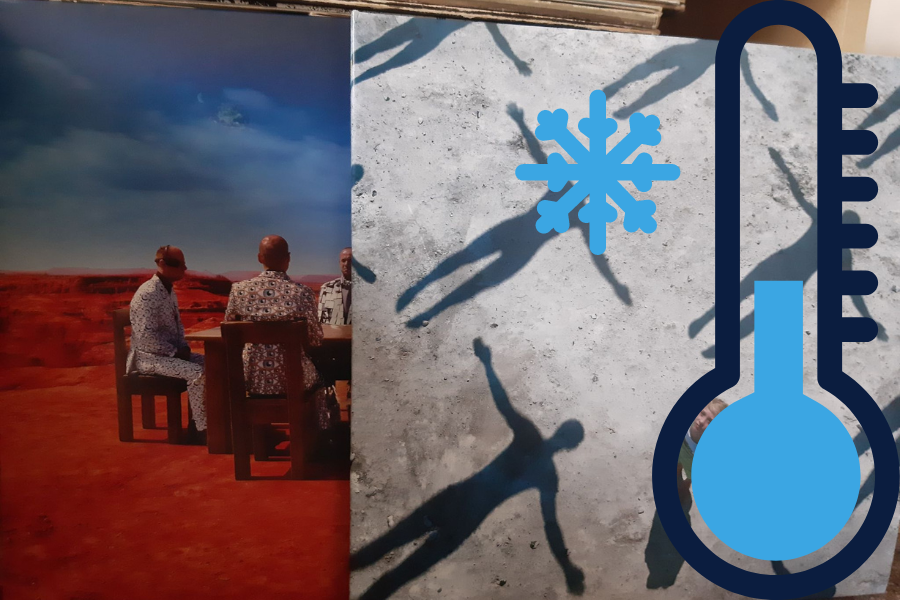
Can Aeroplane Holds Damage Vinyl Records?
Temperature is maintained at approximately 20–23°C on aeroplanes which won’t damage your records.
However, you should securely package your records so they are safe, even in the event of the plane making sudden movements. Airline staff have been known to ‘throw’ luggage around too, so make sure you use a strong case and strap your records inside so they can’t move.
Do Vinyl Sleeves Protect Records?
Vinyl sleeves protect records from scratches, dust and water droplets but they offer little protection from temperature changes or force.
The protection they offer from water damage is enough for water droplets to slip off of it but would not protect your record being submerged or covered in a glass of water.
If you are worried about damaging your records, don’t rely on the sleeves. Instead, you should ensure they are placed in a secure area, away from dust and extreme cold and heat.
Can You Fix A Warped Record?
It is possible to fix a warped record by applying the right amount of pressure and high heat. However, it is likely you will have sound quality issues as this is a technical feat that even the most skilled person is unlikely to avoid.
The Best (And Worst) Places To Store Records In Your Home
The Attic
Storing records in the attic can be a good place if you keep it dust-free, unless you live in an area with high temperatures most of the year. This is because heat rises so in the summer, your attic could get far too hot and cause your records to warp.
The Garage
Unless you have a very well looked after, temperature-controlled garage, you shouldn’t leave your records in the garage. Most garages become humid and damp in the winter which will damage your record sleeves forever.
If you need to store your records in the garage, it will be safer to use a secure storage container. This will make it hard for mould or mildew to get inside and it will be easy to check to avoid any concerns you have.
A Cabinet Or Cupboard
Sturdy cabinet’s and cupboards are the best places to store your records because they are spacious, strong enough to avoid your records falling off, and provide some protection from damp.
They also reduce the chance of experiencing ‘record skipping’, especially if you experience this when there is movement in your room. Check out our guide to diagnosing and fixing record skipping here.
A Shelf
Shelves are lovely places to store vinyl’s because they put them on show and brighten up your home. Their biggest risk however, is your records are more likely to fall off and break than any other storage method.
If you have loose or creaky floorboards, or a room where there is a lot of running around (such as children or pets), I don’t recommend you put records on a shelf in that room!
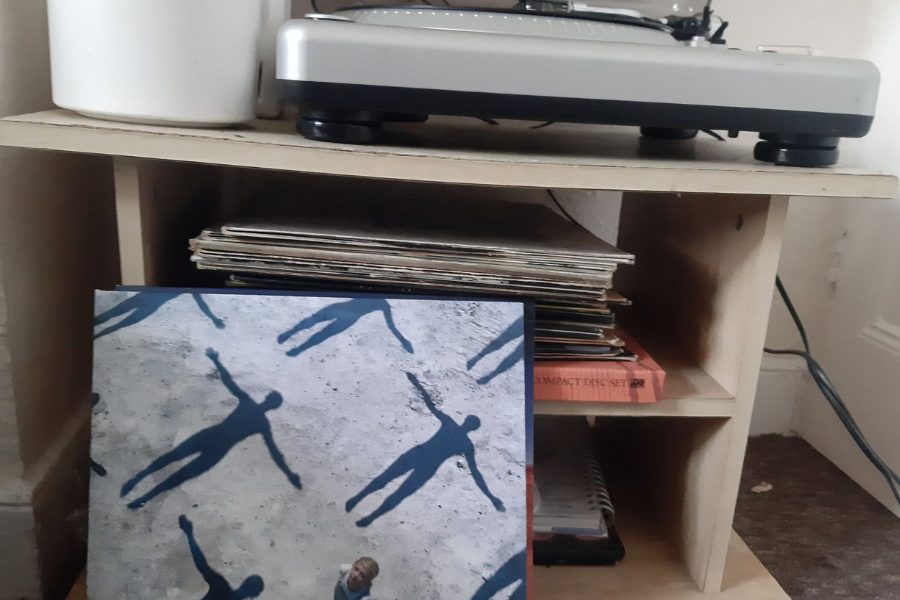
Conclusion
Temperature can damage your records but the chances of permanent damage from the hot and cold in your home is small.
The biggest risk to your records is from humidity which causes mould and mildew. This will quickly destroy the sleeves and paper insides of your records which could then leave your vinyl exposed, causing it to fall out, or risk being scratched.
If you are worried about cold temperatures in your house damaging your record collection, I recommend buying a dehumidifier and plastic sleeves for the winter.

